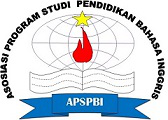STUDENT’S VOICES ON LANGUAGE LEARNER AUTONOMY IN DISTANCE LEARNING
Abstract
Keywords
Full Text:
PDFReferences
Ayu, M. and Pratiwi, Z. F. (2021). The implementation of online learning in english language teaching during pandemic: the teachers' voice. Journal of Research on Language Education, 2(2). DOI: https://doi.org/10.33365/jorle.v2i2.1316
Benson, P. & Voller, P. (1997). Introduction: Autonomy and independence in language learning. In P. Benson & P. Voller. (Eds.), Autonomy & independence in language learning (pp. 1-12). London: Longman.
Benson, P. (1997). Philosophy and politics of autonomy. In P. Benson & P. Voller. (Eds.), Autonomy & independence in language learning. (pp. 18-34). London: Longman.
Benson, P. (2011). Teaching and researching autonomy. London: Pearson.
Börekci, R., & Selami, A. (2019) Foreign language teachers’ interactions with their students on Facebook, Computer Assisted Language Learning, 123. doi.org/10.1080/09588221.2018.1557691
Borg, S., and Alshumaimeri, Y. (2019). Language learner autonomy in tertiary context: Teachers’ beliefs and practices. Language Teaching Research, 23(1), 9-38
Boyd,D.M. & Ellison, N. B. (2007). Social network sites: Definition, history, and scholarship. Journal of Computer-Mediated Communication, 13(1), 210-230. doi:10.1111/j.1083-6101.2007.00393.x
Brandl, K. (2002). The integration of internet-based reading materials into the foreign language curriculum: From teacher-to student-centered approaches. Language Learning & Technology, 6(3), 87-107. Retrieved from https://www.lltjournal.org/item/2408
Dowlings, S. (2011). Web-based learning: Moving from learning islands to learning environments. TESL-EJ, 15(2), 1-27. Retrieved from http://www.tesl-ej.org/wordpress/issues/volume15/ej58/ej58int/ conference (pp. 98-105). Dublin: Researchpublishing.net.
Eneau, J and Develotte, C. (2012). Working together online to enhance learner autonomy: Analysis of learners’ perceptions of their online learning experience. ReCALL, null, pp 319 doi:10.1017/S0958344011000267
Gholami, G. (2016). Self Assessment and Learner Autonomy. Theory and Practice in Language Studies, 6(1), 46-51, DOI: http://dx.doi.org/10.17507/tpls.0601.06
Hamada, M. (2012, August). A Facebook project for Japanese university students: Does it really enhance student interaction, learner autonomy, and English abilities? In L. Bradley & S. Thouesny (Eds.). 20 years of EUROCALL: Learning from the past looking to the future. Proceedings of the 2013 EUROCALL
Karpati, A. (2009). Web 2 technologies for net native language learners: A “social CALL”. ReCALL, 21(2), 139-156.
Khotimah, K., Widiati, U., Mustofa, M., & Ubaidillah, M. F. (2019). Autonomous English learning: Teachers’ and students’ perceptions. Indonesian Journal of Applied Linguistics, 9, 371-381. doi: 10.17509/ijal.v9i2.20234
Little, D. (1990). Autonomy in language learning. In I. Gathercole. (Ed.), Autonomy in language learning (pp. 7-15). London: CILT
Littlewood, W. (1996). “Autonomy”: An anatomy and a framework. System, 24(4), 427-435.
Naghdipour, B., & Eldridge, N. (2016). Incorporating social networking sites into traditional pedagogy: A case of Facebook. TechTrends: Linking Research & Practice to Improve Learning, 60(6), 591–597.
Nartiningrum, N and Nugroho, A. (2021) English Teachers’ Perspectives on Challenges, Suggestions, and Materials of Online Teaching amidst the Global Pandemic. IJEE: Indonesian Journal of English Education, 8(1) DOI: 10.15408/ijee.v1i1.17886
Octaberlina, L. R. and Afif, I. M. (2021). Online learning: Students’ autonomy and attitudes. International Journal of Higher Education, 14(1). pp. 49-61.
Palfreyman, D. (2003). Introduction: Culture and learner autonomy. In D. Palfreyman & R.C. Smith. (Eds.), Learner autonomy across cultures: Language education perspectives (pp. 1-19). New York: Palgrave Macmillan.
Ramadhiyah, S. & Lengkanawati, N. S. (2019). Exploring EFL learner autonomy in the 2013 curriculum implementation. Indonesian Journal of Applied Linguistics, 9(1), 231-240.
Rifiyanti, H. (2021). Learners’ Perceptions of Online English Learning during COVID-19 Pandemic. Scope: Journal of English Language Teaching, 5(1). 31-35 DOI: http://dx.doi.org/10.30998/scope.v5i1.6719
Saeed, M. A., Ghazali, K., Sahuri, S. S., & Abdulrab, M. (2018). Engaging EFL Learners in Online Peer Feedback on Writing: What Does It Tell Us? Journal of Information Technology Education, 17, 39-61. doi.org/10.28945/3980
Shih, R. C. (2011). Can Web 2.0 technology assist college students in learning English writing? Integrating Facebook and peer assessment with blended learning. Australasian Journal of Educational Technology, 27(5), 829-845.
SitumorangK., PramusitaS. M., & NugrohoD. Y. (2021). English Teachers’ Reflections and Lessons Learned in Language Teaching During COVID-19 Pandemic. EDUVELOP, 5(1), 50-61. https://doi.org/10.31605/eduvelop.v5i1.1111
Swatevacharkul, R. (2009). An investigation on readiness for learner autonomy, approaches to learning of tertiary students and the roles of English language teachers in enhancing learner autonomy in higher education. Unpublished research report, Bangkok: Dhurakij Pundit University.
Swatevacharkul, R., and Boonma, N. (2020). Learner Autonomy: Attitudes of Graduate Students in English Language Teaching Program in Thailand. LEARN Journal : Language Education and Acquisition Research Network Journal, 13(2), 176-193
Tess, P. A. (2013). The role of social media in higher education classes (real and virtual) – A literature review. Computers in Human Behavior, 29, 60-68. doi:10.1016/j.chb.2012.12.032
Thongmak, M. (2013). Social network system in classroom: antecedents of Edmodo © adoption. Journal of e-learning and Higher Education, 2013(2013), 1-15. doi:10.5171/2013.657749
Zhong, Q. M. (2018). The evolution of learner autonomy in online environments: A case study in a New Zealand context. Studies in Self-Access Learning Journal, 9(1), 71-85.
DOI: http://dx.doi.org/10.20527/jetall.v5i2.13460
Article Metrics
Abstract view : 286 timesPDF - 206 times
Refbacks
- There are currently no refbacks.
This journal is indexed in:


This Journal is listed in:
 Journal of English Teaching, Applied Linguistics and Literatures (JETALL)
Journal of English Teaching, Applied Linguistics and Literatures (JETALL)









.png)



1.png)
